Student Motivation and Satisfaction with Participation in Blended Learning
A special issue of Social Sciences (ISSN 2076-0760).
Deadline for manuscript submissions: closed (30 November 2023) | Viewed by 2225
Special Issue Editors
Interests: teacher trainee; higher education; Information and Knowledge Technologies (ICT); Learning Technologies (LT) - TPACK; digital gap and inequality; gender; social science education; critical thinking
Interests: society and social change; cultural manifestations; aesthetic thought; students experiences of studying music; competency-based teaching
Special Issues, Collections and Topics in MDPI journals
Special Issue Information
Dear Colleagues,
The transformations of society have led to changes in the teaching and learning processes, modifying the ways of acquiring new knowledge by citizens. Training with technologies and the acquisition of skills are gaining importance, helping to achieve new knowledge and generating more complete and enriched learning, which make up a more equitable and just society. As a result, the traditional roles of student receiving content, teacher transmitting knowledge, as well as educational methods are being challenged. Today's education needs to prepare for changing tasks, which allow them to face the challenges of tomorrow.
In order for all these resources to be used to their full extent, it is necessary to use blended learning, which allows taking into account the diversity of the classroom, which is dynamic, active and participatory.
In this changing context, it is essential to assess the degree of satisfaction in the use of the different teaching and learning strategies. In the same way, it is necessary to analyze the motivation of the students from the inclusion of diverse resources, taking into account the different scenarios in which teaching can be carried out.
Dr. Isabel María Gómez-Trigueros
Prof. Dr. José María Esteve-Faubel
Guest Editors
Manuscript Submission Information
Manuscripts should be submitted online at www.mdpi.com by registering and logging in to this website. Once you are registered, click here to go to the submission form. Manuscripts can be submitted until the deadline. All submissions that pass pre-check are peer-reviewed. Accepted papers will be published continuously in the journal (as soon as accepted) and will be listed together on the special issue website. Research articles, review articles as well as short communications are invited. For planned papers, a title and short abstract (about 100 words) can be sent to the Editorial Office for announcement on this website.
Submitted manuscripts should not have been published previously, nor be under consideration for publication elsewhere (except conference proceedings papers). All manuscripts are thoroughly refereed through a double-blind peer-review process. A guide for authors and other relevant information for submission of manuscripts is available on the Instructions for Authors page. Social Sciences is an international peer-reviewed open access monthly journal published by MDPI.
Please visit the Instructions for Authors page before submitting a manuscript. The Article Processing Charge (APC) for publication in this open access journal is 1800 CHF (Swiss Francs). Submitted papers should be well formatted and use good English. Authors may use MDPI's English editing service prior to publication or during author revisions.
Keywords
- key competition
- TPACK
- motivation
- satisfaction
- blended learning
- ethics in education






